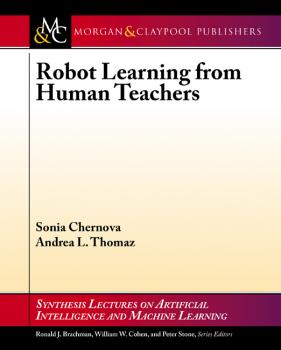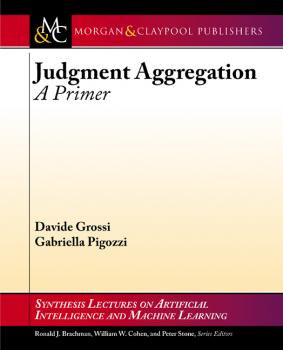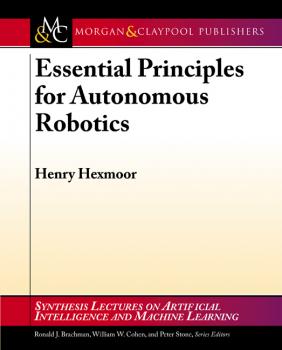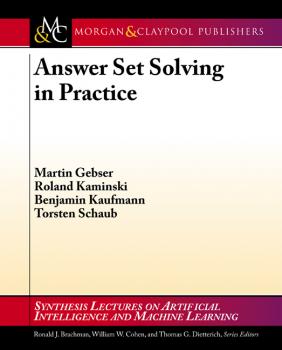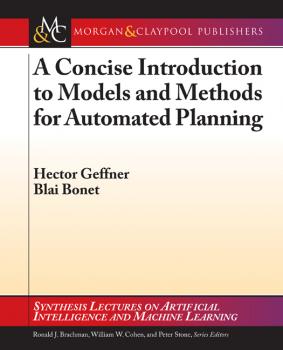Synthesis Lectures on Artificial Intelligence and Machine Learning
Скачать книги из серии Synthesis Lectures on Artificial Intelligence and Machine LearningRobot Learning from Human Teachers
Learning from Demonstration (LfD) explores techniques for learning a task policy from examples provided by a human teacher. The field of LfD has grown into an extensive body of literature over the past 30 years, with a wide variety of approaches for encoding human demonstrations and modeling skills and tasks. Additionally, we have recently seen a focus on gathering data from non-expert human teachers (i.e., domain experts but not robotics experts). In this book, we provide an introduction to the field with a focus on the unique technical challenges associated with designing robots that learn from naive human teachers. We begin, in the introduction, with a unification of the various terminology seen in the literature as well as an outline of the design choices one has in designing an LfD system. Chapter 2 gives a brief survey of the psychology literature that provides insights from human social learning that are relevant to designing robotic social learners. Chapter 3 walks through an LfD interaction, surveying the design choices one makes and state of the art approaches in prior work. First, is the choice of input, how the human teacher interacts with the robot to provide demonstrations. Next, is the choice of modeling technique. Currently, there is a dichotomy in the field between approaches that model low-level motor skills and those that model high-level tasks composed of primitive actions. We devote a chapter to each of these. Chapter 7 is devoted to interactive and active learning approaches that allow the robot to refine an existing task model. And finally, Chapter 8 provides best practices for evaluation of LfD systems, with a focus on how to approach experiments with human subjects in this domain.
Judgment Aggregation
Judgment aggregation is a mathematical theory of collective decision-making. It concerns the methods whereby individual opinions about logically interconnected issues of interest can, or cannot, be aggregated into one collective stance. Aggregation problems have traditionally been of interest for disciplines like economics and the political sciences, as well as philosophy, where judgment aggregation itself originates from, but have recently captured the attention of disciplines like computer science, artificial intelligence and multi-agent systems. Judgment aggregation has emerged in the last decade as a unifying paradigm for the formalization and understanding of aggregation problems. Still, no comprehensive presentation of the theory is available to date. This Synthesis Lecture aims at filling this gap presenting the key motivations, results, abstractions and techniques underpinning it.




